 Egypt : Safety by City
Egypt : Safety by City
Egypt isn’t just a destination—it’s a civilization that shaped the world, and it still pulls millions in with its magnetic mix of ancient wonders and modern intrigue.
Located in North Africa and straddling the Middle East, Libya, Sudan, Israel, and the Gaza Strip border Egypt.
The country has two coastlines along the Red Sea and the Mediterranean.
Its history spans more than 5,000 years, from pharaohs and pyramids to Islamic empires and colonial rule, culminating in a modern republic with a deep cultural legacy.
Travelers come to walk the temples of Luxor, sail the Nile, dive the coral reefs of the Red Sea, and, of course, stare up at the Great Pyramids of Giza—one of the last standing ancient wonders.
But Egypt isn’t without its complexities.
Ongoing tensions in nearby Gaza and parts of Sinai, occasional civil unrest, and strict laws have prompted many countries to issue travel advisories urging caution.
Despite that, tourism is booming again. In 2024, Egypt welcomed a record 15.7 million visitors, signaling that travelers are still eager to experience the country’s unique blend of history, culture, and adventure.
With smart planning and situational awareness, Egypt remains an unforgettable—and often life-changing—place to explore.
That’s if you can stomach the risks.
Warnings & Dangers in Egypt

OVERALL RISK: MEDIUM
Egypt is generally safest for tourists in well-traveled areas like Cairo, Luxor, and the Red Sea resorts. Still, it carries a medium risk due to terror risks, occasional unrest, strict local laws, and recent accidents.

TRANSPORT & TAXIS RISK: MEDIUM
Getting around Egypt can be chaotic. Roads are busy, traffic laws are loosely followed, and public transport isn’t always reliable. Taxis often overcharge foreigners, and rideshares like Uber are safer in cities. Overall, the risk is medium—stick to reputable drivers and avoid driving yourself if possible.

PICKPOCKETS RISK: MEDIUM
Crowded markets, busy tourist attractions, and public transport are hotspots for petty theft. Most theft is nonviolent, but distraction tactics are common. Keep your phone and wallet zipped up and out of reach. While not rampant, pickpocketing poses a medium risk, especially in places like Khan el-Khalili.

NATURAL DISASTERS RISK: LOW
The risk is low overall. Egypt isn’t prone to major natural disasters, but occasional flash flooding can affect southern regions. In Cairo, poor drainage can lead to temporary flooding during rare heavy rain. Earthquakes are uncommon, and the desert climate means no hurricanes or wildfires to worry about.

MUGGING RISK: LOW
Violent crime against tourists is rare, making the risk low. Most crime tends to be opportunistic and non-confrontational. That said, avoid walking alone in unfamiliar areas after dark and be cautious in quiet or isolated parts of big cities.

TERRORISM RISK: HIGH
This remains a high risk. Attacks have targeted security forces, religious sites, and occasionally tourist areas, though incidents have declined in recent years. The government has increased security in key locations, but travelers should stay aware of their surroundings, avoid border areas, and follow current travel advisories.

SCAMS RISK: MEDIUM
The risk here is medium. Tourists often face inflated prices, fake “guides,” or being led to shops with commission arrangements. Always confirm prices before committing to a service, and don’t be afraid to say no. Most scams are annoying, not dangerous, but still a pain if you’re caught off guard.

WOMEN TRAVELERS RISK: MEDIUM
Women may face unwanted attention or street harassment, especially when alone or dressed in revealing clothing. While most interactions aren’t threatening, the experience can be uncomfortable. Risk is medium—dressing modestly and walking confidently helps, and joining a group or hiring a guide offers extra peace of mind.

TAP WATER RISK: HIGH
Avoid drinking tap water in Egypt. Contaminants and bacteria can cause stomach problems for visitors not used to local conditions. The risk is high unless you stick to bottled (check the seal before opening) or filtered water. Also, be cautious of ice, unwashed produce, and street juices that might use untreated water.
Safest Places to Visit in Egypt
The official and trusted website for Egyptian tourism information is visitegypt.com.
You can get a free travel guide, but you’ll have to give your name, email, and phone number.
Egypt is broadly divided into a few key regions, each offering something different for travelers.
In the north, the Nile Delta and Mediterranean coast include Alexandria—once a hub of ancient learning—and laid-back beach towns.
Cairo, in the center, is Egypt’s sprawling, chaotic capital and home to the Pyramids of Giza, the Egyptian Museum, and a mix of Islamic, Christian, and modern culture.
Upper Egypt stretches south along the Nile through Luxor and Aswan, where ancient temples and tombs dominate the landscape.
This is the heart of Pharaonic Egypt, with sites like Karnak, Valley of the Kings, and Abu Simbel drawing millions.
A Nile River cruise between these cities is a popular way to take it all in.
The Sinai Peninsula, flanked by the Red Sea, offers some of the world’s top diving and snorkeling around Sharm el-Sheikh and Dahab.
It’s also home to Mount Sinai, a religious pilgrimage site.
Western Egypt is mostly desert but includes the Siwa Oasis and surreal landscapes like the White and Black Deserts.
Places to Avoid in Egypt
You might want to have a seat for this one because we have quite a list to go through.
This information is based on a summary of the U.S., U.K., Canadian, and Australian travel advisories.
All the places listed below are on the Do Not Travel list.
- Northern Sinai, including Port Said, Ismailia, and Suez.
- Middle Sinai Peninsula
- Northern part of South Sinai
- The Western Desert, west of the Giza-Luxor-Aswan-Abu Simbel road, including Dakhla.
- Any area within 31 miles of the Libyan border
- Eastern part of Ismailiyah Governorate
- Hala’ib Triangle and Bir Tawil Trapezoid
Use extra caution and check recent headlines before even considering traveling to Sharm-El-Sheikh, St. Catherine’s Monastery/Mt. Sinai, Dahab and Taba.
It’s also recommended to avoid the Egypt-Sudan border.
The risks in these regions range from terrorism to lack of infrastructure to no embassy support for international citizens.
Read your country’s specific advisory for more specific and updated information.
Given Egypt’s proximity to Gaza and Israel, regional tensions can escalate quickly, especially in the Sinai Peninsula.
Please stay updated on the situation in the Middle East before and during your trip.
Have an escape plan and a backup plan.
Safety Tips for Traveling to Egypt
- Egypt has a dedicated Tourism Police force—yes, that’s a real thing—and they’re stationed at most major tourist sites. If you’re in trouble, call 122 (the general police emergency line) and ask for help in English. In big cities and popular destinations, someone will usually understand you.
- Egypt doesn’t have a U.S.-style emergency alert system, but if you’re a U.S., Canadian, or UK traveler, register with your country’s embassy before your trip. Many embassies send out travel warnings, alerts, or safety messages via email or SMS in the event of unrest, curfews, or natural disasters.
- You can drive with an International Driving Permit, but it’s not recommended unless you’re really confident in chaotic traffic. Cairo’s roads are lawless, signage is often ignored, and accidents are common. If you’re heading to remote areas, use a driver or tour company familiar with the terrain and local rules.
- Don’t just book the cheapest camel ride or Nile cruise. Look for operators with recent online reviews, clear licensing, and visible safety measures. If it seems sketchy or too cheap to be true, it probably is. Ask your hotel for vetted recommendations when in doubt.
- You should only travel to the Black and White Deserts with a licensed tour operator. These areas are remote, with little cell service, and easy to get lost in. Tour companies arrange permits, provide supplies, and know the terrain—going without them is both illegal and dangerous.
- Protests can happen, especially near universities, government buildings, or on national holidays like January 25 or June 30. Even peaceful demonstrations can turn quickly. Don’t stop to watch or film them. Stay in the tourist zones, keep an eye on local news, and avoid large crowds.
- Don’t climb on ancient sites. Climbing the pyramids or tombs isn’t just disrespectful—it’s illegal. You can get fined or arrested. These sites are thousands of years old and under constant strain from tourism. Stick to designated paths and follow site rules to avoid damaging history (or your record).
- Arabic is the official language, but in major cities and tourist hubs, many Egyptians speak English, especially in hotels, restaurants, and tour operations. That said, learning a few Arabic phrases (like shukran for thank you) goes a long way in showing respect.
- Egypt is a conservative country. While tourists aren’t expected to fully cover up, it’s smart to wear modest clothing, especially in mosques or rural towns. Keep PDA to a minimum. Holding hands is okay, but kissing or hugging in public might draw unwanted attention or offend locals.
- It’s tempting to love the cats and dogs that roam Egyptian streets, but resist. Many are strays without vaccinations, and bites or scratches could mean a rabies scare.
So... How Safe Is Egypt Really?
There’s a lot to unpack about the reality facing tourists in Egypt.
Let’s start with the government advisories.
Most countries have a scale of one to four for ranking the risk factors in specific locations.
One is the lowest, asking citizens to exercise standard precautions.
Four is the highest and comes with an ominous directive to avoid all travel.
Egypt runs the gamut between two and four, depending on which location you’re considering.
Here’s a quick breakdown:
- S. Advisory—Level 3: Reconsider Travel, with several regions at Level 4: Do Not Travel
- Canadian Advisory—Level 2: Exercise a High Degree of Caution, with specific areas ranking at Level 3 or 4.
- Australian Advisory—Level 2: Exercise a High Degree of Caution, with particular regions ranking at Level 3 or 4.
- United Kingdom’s FCDO Advisory—”FCDO advises against all travel to parts of Egypt.”
While all countries agree that there is an inherent risk of terrorism in Egypt, the U.S. ranking it at Level 3 is a breach of standard, as generally, Canada will be the one with the most cautionary risk level, at least from my experience of reading hundreds of these advisories.
That could indicate that the U.S. government feels there’s a higher risk for American citizens, too.
However, many people realize the risk of terrorism and don’t let it stop them from visiting amazing places.
That brings us to our next risk—the tourist accidents in Egypt over the past few years.
In March 2025, a tourist submarine operated by Sindbad Submarines sank off the coast of Hurghada, resulting in the deaths of six Russian tourists, including two children.
This tragedy is part of a series of incidents affecting tourists in Egypt.
In November 2024, a dive boat named Sea Story capsized off the coast of Marsa Alam, leaving 11 people dead or missing.
The UK Marine Accident Investigation Branch (MAIB) issued a statement from Chief Inspector Andrew Moll: “The MAIB is aware of 16 accidents that have occurred over the last five years involving liveaboard dive vessels operating in the Red Sea.
It is deeply regrettable that a number of these accidents have resulted in the loss of life, and our thoughts are with all those affected.”
Additionally, there have been fatal shark attacks, including the death of an Italian tourist in December 2024 near Marsa Alam.
Due to the layers of risks in specific areas and the under-regulated tourism industry, due diligence and exemplary safety steps are needed to enjoy all Egypt has to offer.
How Does Egypt Compare?
| Country | Safety Index |
|---|---|
| Egypt | 38 |
| Djibouti | 38 |
| Croatia | 83 |
| Mexico | 65 |
| France | 64 |
| Puerto Rico | 34 |
| Somalia | 16 |
| United Kingdom | 77 |
| Peru | 50 |
Useful Information

Visas
Most travelers need a visa to visit Egypt, but it’s not a hassle. You can apply online ahead of time or just grab one on arrival at major airports. Either way, don’t wing it—check your eligibility first and make sure your passport has at least six months left.

Currency
Egypt runs on the Egyptian Pound (EGP), and cash is still king in many places. Major hotels and tourist spots take cards, but smaller shops and local vendors often won’t. ATMs are easy to find in cities, but always keep some smaller bills handy for tips and taxis.

Weather
The sun doesn’t mess around in Egypt. Summers are brutal—especially in places like Luxor and Aswan—so plan for fall, winter, or early spring if you can. Even Cairo can feel like a furnace by May. Desert heat plus sightseeing? Not for the faint of heart.

Airports
Cairo International is the main entry point, but airports in Luxor, Hurghada, and Sharm El-Sheikh get a lot of international traffic too. Security is tight, and lines can crawl, so give yourself time.

Travel Insurance
Egypt’s incredible, but travel mishaps happen: heat exhaustion, food issues, lost bags—you name it. Good insurance means you’re covered if plans go sideways. Make sure your policy includes medical coverage and trip delays, especially if you’re bouncing around between cities or cruising the Nile.
Egypt Weather Averages (Temperatures)
Average High/Low Temperature
| Temperature / Month | Jan | Feb | Mar | Apr | May | Jun | Jul | Aug | Sep | Oct | Nov | Dec |
|---|---|---|---|---|---|---|---|---|---|---|---|---|
| High °C |
19 | 21 | 24 | 28 | 32 | 35 | 36 | 35 | 33 | 30 | 25 | 20 |
| Low °C |
9 | 10 | 13 | 16 | 20 | 22 | 24 | 24 | 22 | 19 | 15 | 10 |
| High °F |
66 | 70 | 75 | 82 | 90 | 95 | 97 | 95 | 91 | 86 | 77 | 68 |
| Low °F |
48 | 50 | 55 | 61 | 68 | 72 | 75 | 75 | 72 | 66 | 59 | 50 |
Egypt - Safety by City
| City | Safety Index |
|---|---|
| Alexandria | 49 |
| Cairo | 39 |
| Sharm el Sheikh | 46 |
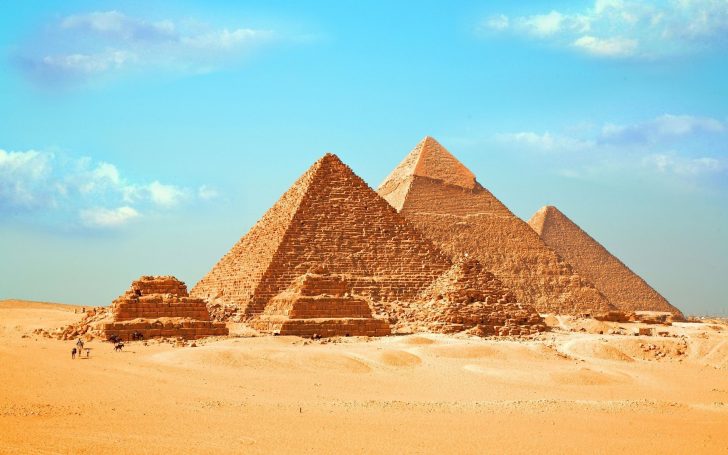
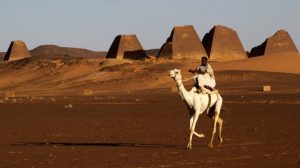
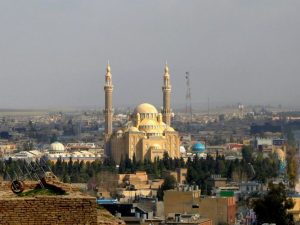
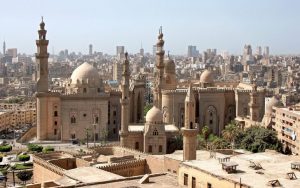
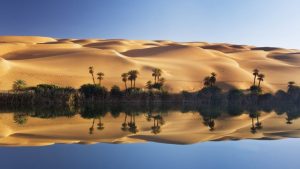







I love it
I feel very safe in Egypt and would just like to point out judging my family is Egyptian that the trains is the worst and the most dangerous way of transportation
trains ? hahah. have you not read about passengers who burned to death . transportation should be high risk in Egypt
All the infrastructure are being renewed
Hello Khaled, hope you are doing great, first off all I respect your opinion, but now a days Egypt is changing all its infrastructure and such cases are not happening any more, Egypt real ways have been totally renewed in last few years,
Amazing cuisine
I think I like Egypt’s food more than their pyramids haha #foodlover Chicago has a lot of Egyptian restaurants but nothing that compared to the real deal. I was in a food coma the whole trip, I’m not even kidding!
Watch your pockets!
Unfortunately I ended as just another number in their pickpocketing statistics. I barely landed and while struggling to find a cab I noticed my portable charger was not in my pocket anymore. I was lucky they didn’t took my phone or wallet, it could have ended way worse for me but hey, lesson learned…
Phone stolen as soon as I was at Giza Pyramids
They got my phone at the Pyramids and they put a security guard especially on me, almost no one was around me at the time so I wonder if my tour guide and the “security “ were not in on it! They sure didn’t look interested in helping me find it! I bet they didn’t expect me to cry half the day making the tour company look bad!
Egypt is Safe
Since 2019 such cases has been disappear as the police are covering all the country and all people are safe with their protection specially the tourists trips, every bus is protected by a police car, and to be fair such cases may happen in most civilized countries like USA
Watch out for scams
I find Egypt very similar to Turkey when it comes to their taxis; you have to negotiate before and make sure you were understood otherwise you will get scammed. Otherwise, great country and they do know how to do tourism the right way.
Try to visit us again and you will see the change
You can use UBER or Kareem Apps and will not need to negotiate the delivery fees also not all the taxi drivers do the same behaviour 🙂
Wish to see you again in our country 😉
One of the best places to visit
Egypt is great. people are very nice and honest, best restaurants ever and top notch hotels and its so cheap for what you get
Great place to visit!
While there is some danger here in Egypt I wouldn’t say it’s as dangerous as it is portrayed here. We had a good time when we were there and nothing very bad or out of the ordinary happened. Of course there are pickpockets like in any big place but the place is wonderful overall. Don’t even get me started on the food which is amazing!
Need reviewing
Please review your opinion on the roads, massive renovation happened
Also pickpocket is not common in Egypt
great country but needs reviewing
I went to Egypt last month It was a nice experience even tho my phone got stolen we managed to get it back, the food there is amazing.
So many amazing cities and places to visit!
I think things in Egypt are getting better with each passing year. Pickpockets aren’t seen as much as they once were. I remember going there in 2017 and someone managed to steal my phone which was a bit of a catastrophe for me at that moment. And pickpockets could be seen operating in all crowded areas. Now, last time I was in Egypt, it seems like the police have a much bigger presence which discourages pickpockets.
I haven’t had anything else bad happen, like terrorism or muggings (which can occur, especially at night in dangerous areas). I’ve heard of someone being mugged in Cairo but honestly, this is not that common. If you just pay attention to your surroundings, don’t go into dangerous neighborhoods and avoid traveling at night, you will reduce the chances of anything bad happening. A guide is also very handy and will improve your overall experience so if you can afford it, get one.
As for places to visit of course, the Pyramids of Giza should be a must see if you go there for the first time, then the Luxor’s Karnak Temple and the Valley of the Kings, and then Abu Simbel. I would recommend cruising the Nile, which is a very special experience if you like water – a multi-day cruise might be something you remember for years to come. Or if you are very adventurous why not consider cruising the Nile by felucca which is a traditional Egyptian wooden boat.
Aswan is a beautiful city, where you will feel at peace as this city is very peaceful. It’s the perfect spot to drink tea and watch ships/feluccas drift along the water. Make sure to visit Aswan’s islands while here and also the many temples that are close-by.
And why not visit some temples underwater? Diving in the Red Sea is something many people like doing (myself included). You’ll find many cargo ships that lie at the bottom of the sea.
Overall Egypt is filled with many wonderful monuments and places awaiting to be explored. You just have to invest some time (like 2-3 weeks to get a chance to see more of what it has to offer).
we are supposed to buy a house over there when find out the country is not safe i changed my plan.
id say egypt overall is a good country. however public transportation may be a big problem for tourists. taxi drivers will 100% overcharge you. if you book a taxi/bus by uber or careem it is reliable and will not overcharge you. pyramid scams are something to keep your eye on as the people there will try and rinse any money out of you. the food is lovely, and the people are very welcoming. id say for women travelling alone to egypt, it wouldn’t be safe, and to be cautious.